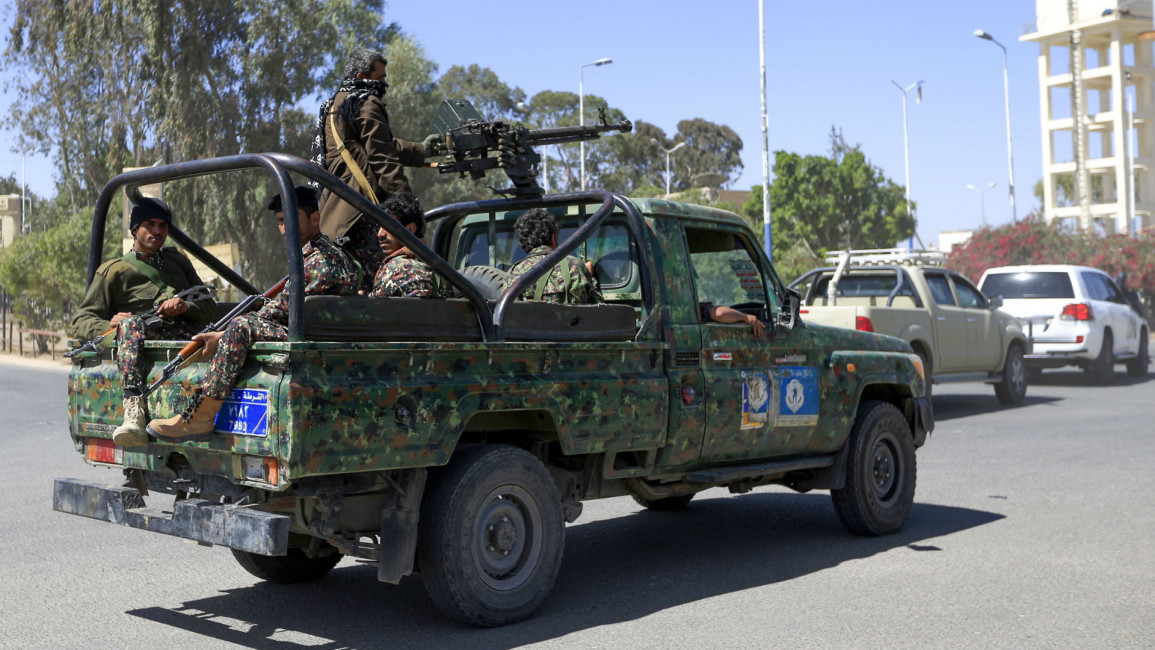Five children killed in attack in Yemen's Hodeida: UN
The five children were "playing at home" when they were killed on Thursday, the UN children's agency (UNICEF) said, without providing details on the nature of the attack or the perpetrators.
"Each day, eight children are killed or injured across 31 active conflict zones in the country," UNICEF executive director Henrietta Fore said in a statement on Saturday.
Medics in the Tuhayta district, in southern Hodeida, on Sunday confirmed to AFP that they had transferred dead and wounded children to a hospital in the government-held Khokha district nearby.
The Red Sea province of Hodeida has witnessed some of the Yemen war's most intense fighting, which has eased since the government and Houthi rebels agreed to a ceasefire in the area in December.
The Houthis have battled the government and its allies in a coalition led by Saudi Arabia and the United Arab Emirates for control of the impoverished country for four years.
Hodeida, held by the rebels since 2014, has witnessed intermittent clashes between the Houthis and pro-government forces since the ceasefire went into effect on December 18.
Last week, the UN envoy for the war-battered country said the expected pullout of forces from three key ports in Yemen provides an opportunity to move to the major goal of ending the four-year conflict that has created the world's worst humanitarian crisis.
Major step forward
Martin Griffiths told the UN Security Council that Yemen's government and Houthi rebels demonstrated that they are able to deliver on commitments they made in December in Stockholm by agreeing on the first phase of redeployment from the ports.
A UN official said the first phase involves pulling back several kilometers, and the second phase a withdrawal of 18 to 30 kilometers (11-18 1/2 miles), depending on the location and fighters. In some places in Hodeida city, the opposing forces are facing each other about 100 meters apart, the official said, speaking on condition of anonymity because negotiations were private.
Griffiths said the Stockholm agreement was "a breakthrough" and a major shift by the warring parties, but he said it "was only ever intended to be a preliminary step."
He recalled in a video briefing from Amman, Jordan that he previously told the council "that Hodeida was the center of gravity of the war — and it is."
"In truth, our primary interest, the real center of gravity of this war, has to be moving towards a political solution," Griffiths said. "The implementation of the Hodeida agreement as announced today gives us permission to look ahead beyond the agreement made in Stockholm."
He said starting a discussion on political and security arrangements for Yemen would be "a major step forward and an important statement of intent from the parties that they are determined ... finally, to bring this conflict to a close."
Another key part of the Stockholm agreement was the exchange of prisoners, which has been the subject of two rounds of talks in Amman.
Griffiths said both sides seek the release of all prisoners and "I would like to think that we are not far off from agreeing and realizing the release of a first batch."
More than 10,000 people - mostly civilians - have been killed and more than 60,000 wounded since Saudi Arabia and its allies joined the conflict in 2015, according to the World Health Organisation. However, rights groups say the real figure could be five times as high.
The conflict has triggered what the UN calls the world's worst humanitarian crisis, with more than 10 million people at risk of starvation.
Over 24 million Yemenis - more than three quarters of the country's population - are now dependent on some form of aid for survival, according to the UN.
Follow us on Twitter: @The_NewArab



